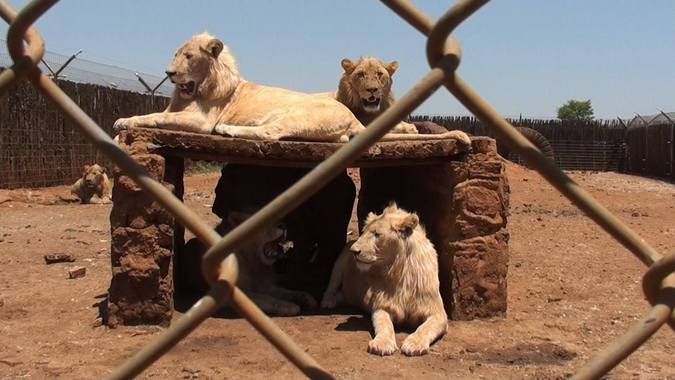
Sourced from third-party sites: Portfolio Committee on Environmental Affairs & Centre for Environmental Rights
A new parliamentary report has called for a ban on captive lion breeding for hunting and the lion bone trade in South Africa. The Portfolio Committee on Environmental Affairs (PCEA) on Thursday, 8th November, adopted a report of the two-day colloquium that was held on captive lion breeding and the hunting of lions for bones on 21 – 22 August 2018. The PCEA requested that the Department of Environmental Affairs urgently initiates a policy and legislative review with a view of putting an end to the practice of breeding lions for hunting and the bone trade.
Entitled Captive Lion Breeding for Hunting and Bone Trade in South Africa, the 24-page report found that captive lion breeding held no conservation value. There was no evidence to support the flawed, minority-held, argument that the captive-bred lion industry is “a well-regulated, manageable industry that contributes way more positively to South Africa than negatively”.
The report further asserts that the South African government should rethink its policy stance on the captive lion breeding industry, which runs the risk of making the country an “international pariah”.
It was also recommended that the government should reconsider the decision to increase the lion bone trade quota from 800 to 1,500 lion skeletons, stating that the decision was informed by commercial considerations, as opposed to science. There are also ethical, welfare and brand concerns relating to the captive lion breeding and hunting industries, according to the report.
The report contains the views of representatives of local pro-hunting and conservation organisations, as well as international organisations like the IUCN, who spoke against the industry calling on the South African Government to terminate this practice.
To comment on this story: Login (or sign up) to our app here - it's a troll-free safe place 🙂.![]()






